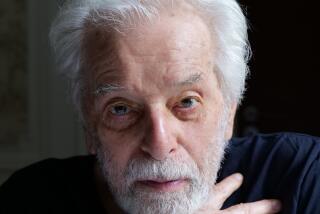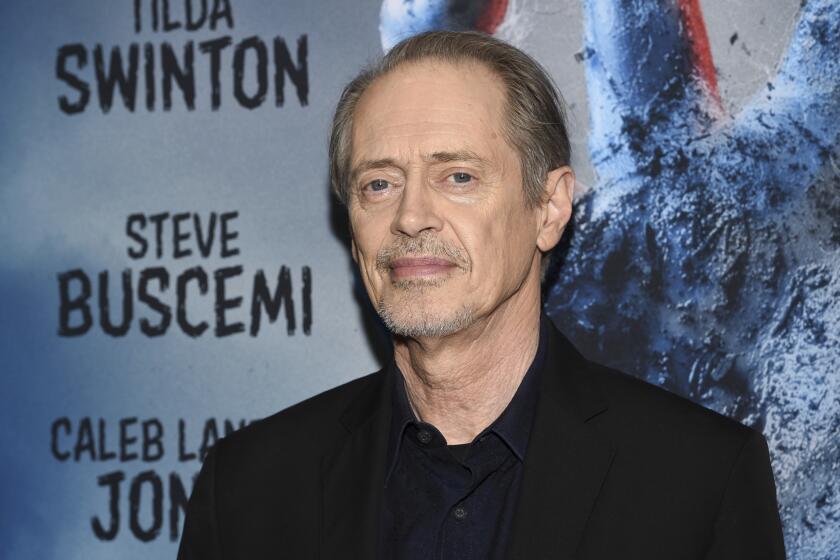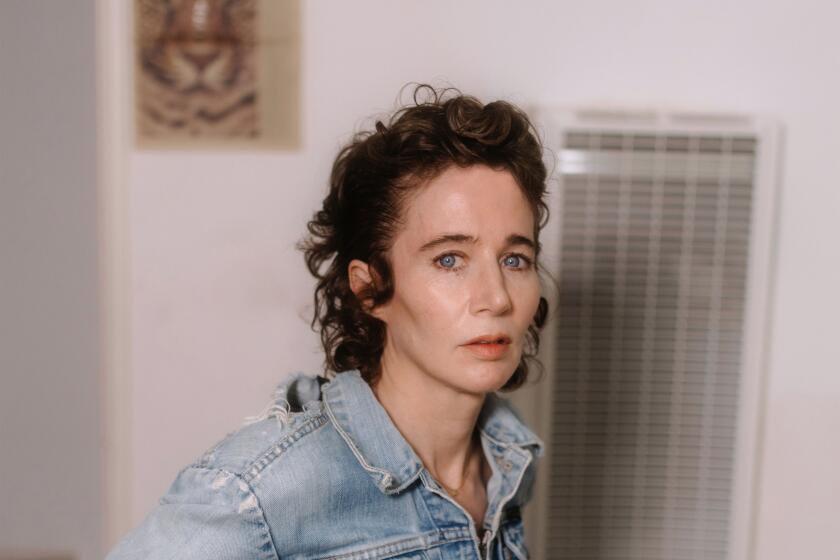Screening Room : A Strong Week for Alternative Filmmakers
Michael Jay Tollin’s vital and thoughtful 44-minute documentary “Hardwood Dreams” and Kim Greene’s delightful 40-minute “Sweet Potato Ride,” which premiere Thursday at the Nuart and then screen Saturdays and Sundays at noon, highlight an exceptionally strong week of alternative film offerings.
The first, which anticipates the mini-basketball film trend of the forthcoming, highly praised documentary “Hoop Dreams” and feature film “Basketball Diaries” (based on the Jim Carroll memoirs), chronicles the senior year of local kids hoping to make good: five African American basketball stars at Inglewood’s Morningside High School, all hoping to land college scholarships. These young men are likable, even as they are subject to terrific external pressures--and most of them suffer from a woefully inadequate preparation for college.
Greene’s wise, amusing and affectionate vignette, written and produced with Camille Tucker, centers on an adventure-filled afternoon of a bright African American 10-year-old (irresistible Dejuan Guy) that deftly underlines the importance of a strong father-son relationship. Information: (310) 478-6379.
*
Turner Entertainment launches “The Silent Roar” tonight at 8 at the Silent Movie, 611 N. Fairfax. The series of 24 MGM productions begins with Rex Ingram’s majestic anti-war classic “The Four Horsemen of the Apocalypse” (1921), in which Rudolph Valentino tangoed his way to stardom. Information: (213) 653-2389.
*
The exceptionally rewarding retrospective of the films of East German director Konrad Wolf continues Tuesday at 7 p.m. at the Goethe Institute, Suite 110, 5700 Wilshire Blvd. “The Sun-Seekers” (1959) is one of Wolf’s most complex works, a rousing drama set in a uranium mine in 1950 and revealing both its dangerous working conditions and tensions between Soviet administrators and German underlings. At its center are a sober, war-scarred young couple (Ulrike Germer, Gunther Simon) struggling to make their relationship work and an earthy older couple (Manja Behrens, Erwin Geschonneck) reunited after having worked in a circus years before.
Wolf comes out strongly for socialism, Soviet-German solidarity and the peaceful uses of nuclear power, but he was too much of an honest artist not to depict the mine as something less than an earthly paradise. As a result, this very fine film, made to celebrate the German Democratic Republic’s 10th anniversary and slated to open just days before the Soviets resumed nuclear testing in October, 1959, was not released until 1972.
Like his gifted Hollywood counterparts, Wolf could make a suspiciously arbitrary ending work for rather than against him. This is the case with his 1964 “The Divided Heaven” (Thursday at 7 p.m.), which bravely manages to be critical of virtually every aspect of East German communist society, protesting the evils of hidebound ideology in the classroom, in the workplace and especially in the laboratory.
Renate Blum and Eberhard Esche star as a student, preparing to be a teacher, and her lover, a brilliant research chemist tempted by the greater freedom of the West. You come away from “The Divided Heaven” reminded that Hollywood’s dictates of the box office can be more restrictive than even those of an industry controlled by a rigid communist government. Information: (213) 525-3388.
*
MTV and the UCLA Film Archive present the one-week “Human Rights Watch International Film Festival” starting Friday at the Nuart. Among its feature films are Radu Mihaileanu’s “Betrayal” (Saturday at 6:30 p.m.), a bleak yet compelling account of the terrible price exacted of a major poet (Johan Leysen) for release from prison after 11 years; Margarethe Von Trotta’s admirably uncompromising “The Long Silence” (Friday at 9:30 p.m., June 16 at 9 p.m.) in which a resolute judge (Jacques Perrin), backed by his staunch wife (Carla Gravina), risks his life to investigate wide-ranging corruption in high places; Winfried Bonengel’s “Beruf: Neo-Nazi” (Saturday at 9 p.m.), a documentary on the international neo-Nazi movement which derives its scary power from its cool detachment--and which in turn ironically sparked a furor, and Jolanta Dylewska’s powerful documentary “Chronicle of the Uprising in a Warsaw Ghetto According to Marek Edelman” (Sunday at 4 p.m., June 16 at 7 p.m.).
More to Read
Only good movies
Get the Indie Focus newsletter, Mark Olsen's weekly guide to the world of cinema.
You may occasionally receive promotional content from the Los Angeles Times.






